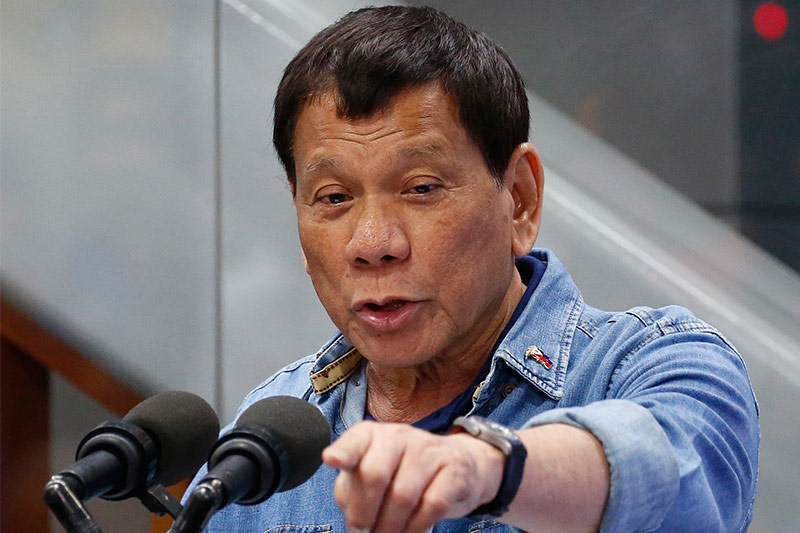UN: Philippines' pullout from ICC effective in 1 year
March 20, 2018 | 8:37am

In this Feb. 13, 2018, file photo, President Rodrigo Duterte addresses Filipino overseas workers who were repatriated from Kuwait at the Ninoy Aquino International Airport in suburban Pasay city, southeast of Manila, Philippines. Duterte asked other countries on Sunday, March 18, 2018 to abandon the International Criminal Court because it is "rude." Duterte is facing a possible complaint before the world tribunal for the thousands of killings of drug suspects during his time in office.
AP Photo / Bullit Marquez
UNITED NATIONS — The United Nations said Monday it received official notification of the Philippines' decision to withdraw from the International Criminal Court, a move that follows the tribunal's announcement of a preliminary probe of drug suspect killings under the president.
UN deputy spokesman Farhan Haq said the Office of Legal Affairs' treaty section received a document Saturday signed by Foreign Secretary Alan Peter Cayetano informing Secretary-General Antonio Guterres of the Philippines' decision to pull out of the ICC.
Haq said the document "constitutes a notification" under the Rome Statute that established the court, and "the withdrawal shall therefore take effect for the Philippines one year after the date of receipt, i.e., on March 17, 2019."
Last month, ICC prosecutor Fatou Bensouda, announced that she was opening a preliminary examination into a complaint by a Filipino lawyer of suspected extrajudicial killings under President Rodrigo Duterte's anti-drug campaign, which could amount to crimes against humanity.
The move angered Duterte, who announced last Wednesday that he was withdrawing the Philippine ratification of the Rome Statute "effective immediately."
Although the Philippine Senate ratified the Rome Statute, Duterte said the treaty was never enforced in the country because it was not published in the government journal as required by law.
He cited "a concerted effort" by Bensouda and UN human rights officials "to paint me as a ruthless and heartless violator of human rights."
More than 4,000 mostly poor drug suspects have been killed under Duterte's drug crackdown, according to the national police, although human rights groups have reported larger death tolls.
Duterte argued last Wednesday that the killings do not amount to crimes against humanity, genocide or similar atrocities.
Duterte's action came under fire from human rights groups, who said the president was trying to evade accountability by backing out of the ICC.
The International Criminal Court, which began operating in 2002, is the world's first permanent war crimes tribunal. Currently, 124 countries are parties to the Rome Statute.
Under the treaty, the court can step in only when countries themselves are unwilling or unable to dispense justice for genocide, crimes against humanity or war crimes.
South Korean judge O-Gon Kwon, president of the Assembly of States Parties to the ICC, expressed regret at Duterte's decision to withdraw and encouraged the Philippines to remain a party to the court.
"A state party withdrawing from the Rome Statute would negatively impact our collective efforts towards fighting impunity," he said.
BrandSpace Articles
<
>
Philstar
- Latest
- Trending
Trending
Latest
Trending
Latest
Recommended

































